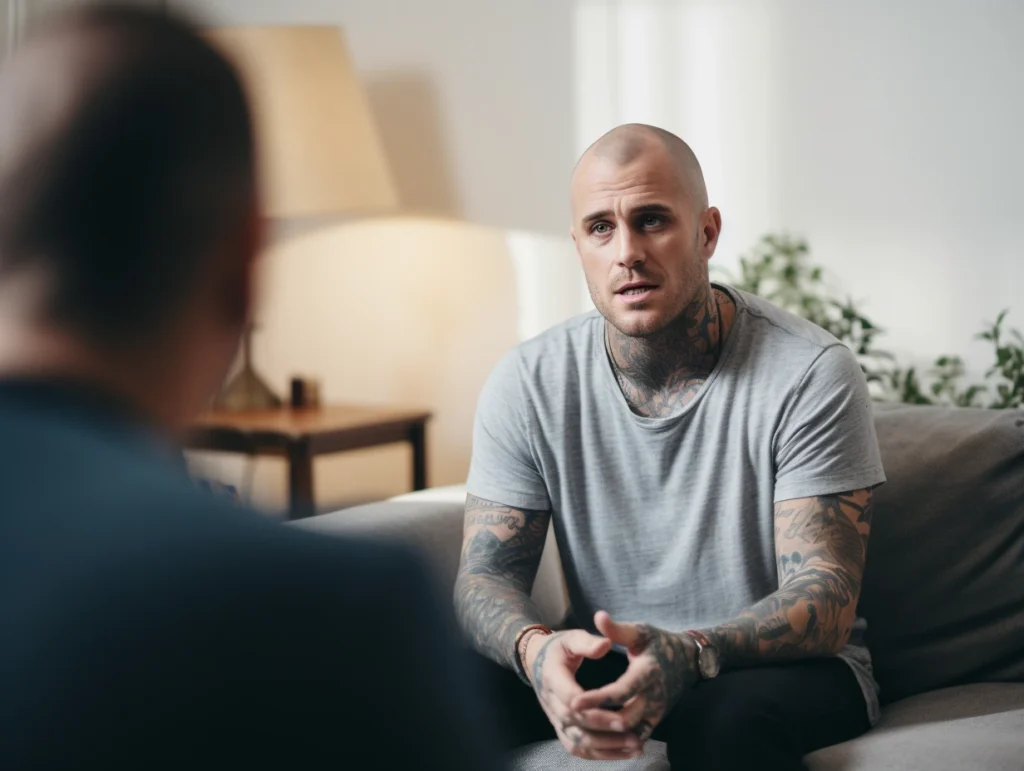Our Oregon residential mental health care provides a stable foundation for your mental health, free from the stressors and triggers of daily life.
Inpatient rehab allows patients to fully focus on their mental health while living at our treatment center. Our subacute program is designed for those needing psychiatric support but not posing an immediate danger to themselves or others. Patients receive a personalized treatment plan, which includes individual and group therapy, medication management, and recreational activities like yoga, art and sports.

Finding the right treatment is crucial for your recovery. Our subacute inpatient mental health program could be the right fit for you if:
If the following applies, you may require a higher level of care than our program provides:
The Recovery Village Salem offers a supportive and healing environment for your recovery.
With 24/7 medical support, you’ll have the opportunity to stabilize your mental health and start fresh. Our experts will guide you in individual and group therapy, helping you understand your mental health symptoms and strengthen your recovery skills.

A Recovery Advocate can answer any questions and help you get started in inpatient care.
For many people, self-medicating their mental health condition with drugs or alcohol can provide temporary relief but worsen their symptoms over time. If you’re struggling with a mental health disorder and an addiction, treating both at the same time is key to a successful recovery.
Many behavioral health facilities only offer one or the other. The licensed professionals at The Recovery Village Kansas City can not only treat both, they’ll help you understand the relationship between your conditions for more holistic healing.
Your stay in an inpatient mental health program will be determined by your specific needs. In most cases, patients complete their residential treatment in two to four weeks.
Staying in treatment for the recommended time is crucial for long-term recovery, so we encourage you to complete your program. However, you are free to leave at any time, even against medical advice.
If you’ve completed acute mental health care at a different facility and need more help before transitioning back to community living, our subacute residential treatment program is here for you.
A case manager will begin planning for your graduation from day one, ensuring you are connected to community mental health resources and outpatient therapy for ongoing care.
At our dual diagnosis treatment center, we address both substance use and mental health disorders. Our medical team will assess your needs to determine the best treatment path, whether for mental health or addiction. If your primary concern is mental health, you’ll receive medical detox for substance use and participate in specific group therapy sessions for addiction alongside your mental health sessions.
If substance abuse is your main concern, you’ll start with detox and inpatient rehab for substance abuse. Your mental health diagnosis will be addressed during individual therapy sessions.
Health insurance is accepted at many inpatient programs, including The Recovery Village Salem, and may cover part or all of the costs. If you’re uninsured, private pay options may be available to you.
The Family and Medical Leave Act (FMLA) provides legal protection for those taking time off work for mental health treatment, allowing you to keep your job. However, not everyone qualifies for FMLA. We can help you figure out if you qualify.
Mental health disorders may affect your ability to care for your children. While custody is not assured, seeking treatment and recovery typically helps in custody matters. Often, parents arrange for relatives to care for their children during rehab.
We’re available to answer any questions, confirm your insurance benefits and schedule individualized treatment that works for you.
The Recovery Village Salem offers comprehensive addiction treatment for drug and alcohol addictions and co-occurring mental health conditions.
Medical Disclaimer: The Recovery Village aims to improve the quality of life for people struggling with a substance use or mental health disorder with fact-based content about the nature of behavioral health conditions, treatment options and their related outcomes. We publish material that is researched, cited, edited and reviewed by licensed medical professionals. The information we provide is not intended to be a substitute for professional medical advice, diagnosis or treatment. It should not be used in place of the advice of your physician or other qualified healthcare provider.